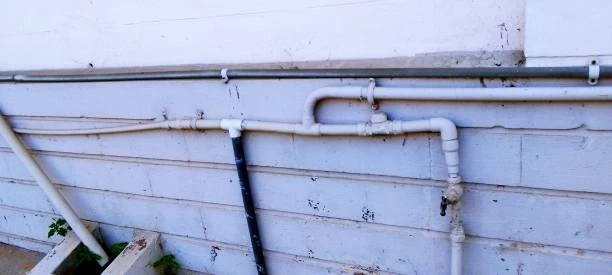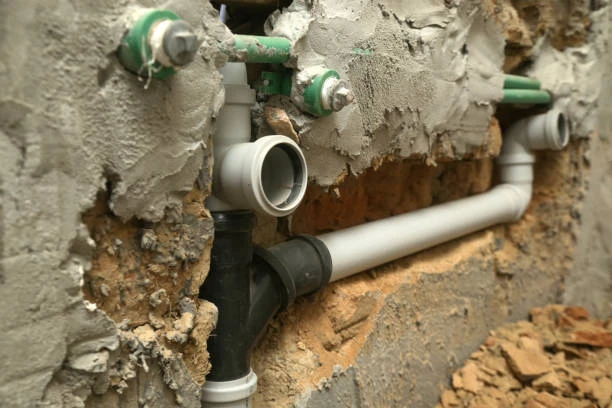The PVC pipe industry is gearing up for a remarkable fiscal year, with projections indicating a 35% revenue growth. This surge is primarily drive by the increasing demand for CPVC fittings, which are know for their superior performance and versatility in various applications. In this article, we will explore the factors contributing to this growth, the benefits of CPVC fittings, and what the future holds for manufacturers in this sector.
Understanding CPVC Fittings
CPVC (Chlorinated Polyvinyl Chloride) fittings are an essential component of modern plumbing and piping systems. They are use in residential, commercial, and industrial applications due to their robustness, resistance to corrosion, and ability to withstand high temperatures. Unlike traditional PVC fittings, fittings are specially treat to enhance their chemical resistance, making them ideal for hot water applications and corrosive environments.
Benefits of CPVC Fittings
- High Temperature Resistance: Fittings can handle temperatures up to 200°F (93°C), which makes them suitable for hot water distribution systems. This capability allows for safer and more efficient plumbing in both residential and industrial settings.
- Corrosion Resistance: One of the primary advantages of CPVC fittings is their resistance to corrosion. Unlike metal pipes, which can rust and degrade over time, CPVC fittings maintain their integrity, ensuring a longer lifespan and lower maintenance costs.
- Ease of Installation:Fittings are lightweight and easy to install, reducing labor costs and installation time. Their socket joint system allows for quick assembly and disassembly, which is particularly advantageous in renovation projects.
- Cost-Effectiveness: While the initial investment in fittings may be slightly higher than traditional PVC options, their durability and low maintenance requirements make them a cost-effective solution in the long run.
- Versatility:Fittings can be use in a variety of applications, from residential plumbing to industrial processes. This versatility has contributed to the increased demand in recent years.
Market Drivers for CPVC Fittings
Several key factors are driving the growth of the fittings market:
1. Rising Construction Activities
The ongoing boom in the construction industry, particularly in emerging economies, has significantly increased the demand for fittings. With new residential and commercial projects underway, builders are opting for materials that offer long-term benefits, such as CPVC.
2. Increasing Awareness of Sustainability
As sustainability becomes a top priority for consumers and businesses alike, the demand for eco-friendly materials is on the rise. Fittings are make from recyclable materials and have a lower environmental impact compared to traditional plumbing solutions.
3. Technological Advancements
Innovations in manufacturing processes and product design have enhanced the performance and applicability of CPVC fittings. These advancements allow manufacturers to produce fittings that meet stringent quality standards while reducing costs.
4. Growing Water Management Initiatives
With water scarcity becoming a critical issue in many regions, efficient water management practices are being adopt. CPVC fittings are increasingly being use in irrigation and drainage systems, further driving market growth.
Challenges in the CPVC Fittings Market

Despite the promising growth, the fittings market faces certain challenges:
1. Competition from Alternative Materials
While fittings offer numerous advantages, competition from alternative materials such as PEX (cross-linked polyethylene) can hinder market growth. PEX fittings are also gaining popularity due to their flexibility and ease of installation.
2. Price Fluctuations
The cost of raw materials used in the production of fittings can fluctuate, affecting pricing stability. Manufacturers need to navigate these fluctuations to maintain competitiveness.
3. Regulatory Hurdles
Compliance with various industry regulations and standards can pose challenges for manufacturers. Staying abreast of changes in regulations is essential for maintaining market presence.
The Future of CPVC Fittings
Looking ahead, the outlook for the fittings market remains optimistic. As construction activities continue to rise and the demand for sustainable materials grows, manufacturers are expect to capitalize on these trends. Innovations in product development and manufacturing processes will further enhance the appeal of CPVC fittings.
Conclusion
The projected 35% revenue growth for PVC pipe makers this fiscal year underscores the significant role that CPVC fittings play in this sector. With their durability, ease of installation, and resistance to corrosion, CPVC fittings are becoming the go-to choice for a wide range of applications. As the industry evolves, embracing technological advancements and sustainable practices will be crucial for manufacturers looking to thrive in this competitive market.

FAQs
1. What are CPVC fittings used for?
CPVC fittings are primarily use in plumbing systems for hot and cold water distribution, as well as in industrial applications.
2. Are CPVC fittings safe for drinking water?
Yes, CPVC fittings are approve for use in potable water systems, making them safe for drinking water applications.
3. How do CPVC fittings compare to PVC fittings?
CPVC fittings can handle higher temperatures and offer better resistance to corrosion compared to standard PVC fittings.
4. Can CPVC fittings be recycled?
Yes, fittings are made from recyclable materials and can be processed at facilities equipped to handle them.
5. What maintenance is required for CPVC fittings?
Fittings require minimal maintenance due to their durability; regular inspections for leaks and damage are typically sufficient.

















